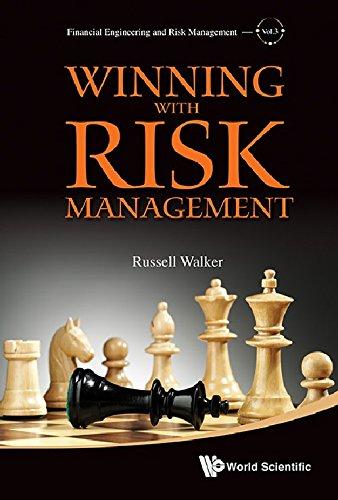Visit to download the full and correct content document: https://textbookfull.com/product/vampire-with-benefits-a-mythmatched-story-supernat ural-selection-book-2-e-j-russell/

More products digital (pdf, epub, mobi) instant download maybe you interests ...

Single White Incubus Supernatural Selection Book 1 A Mythmatched story E.J. Russell
https://textbookfull.com/product/single-white-incubussupernatural-selection-book-1-a-mythmatched-story-e-j-russell/

Bloody Rosary Academy: Year Two (The Supernatural Vampire Fae Chronicles #2) 1st Edition Avery Song & Veronica Agnus [Song
https://textbookfull.com/product/bloody-rosary-academy-year-twothe-supernatural-vampire-fae-chronicles-2-1st-edition-avery-songveronica-agnus-song/

Trial of the Vampire (Obsidian Cove Supernatural Academy #3) 1st Edition Jarica James
https://textbookfull.com/product/trial-of-the-vampire-obsidiancove-supernatural-academy-3-1st-edition-jarica-james/

Trump Is a Four Letter Word E.J. Gold
https://textbookfull.com/product/trump-is-a-four-letter-word-e-jgold/

Adobe Animate CC Classroom in a Book 1st Edition
Russell Chun
https://textbookfull.com/product/adobe-animate-cc-classroom-in-abook-1st-edition-russell-chun/

Adobe Animate CC Classroom in a Book (2018 Release)
Russell Chun
https://textbookfull.com/product/adobe-animate-cc-classroom-in-abook-2018-release-russell-chun/

Winning with Risk Management Financial Engineering and Risk Management Volume 2 1st Edition Russell Walker
https://textbookfull.com/product/winning-with-risk-managementfinancial-engineering-and-risk-management-volume-2-1st-editionrussell-walker/

Last Breath Supernatural Horror with Scary Ghosts
Haunted Houses Haunted Collection Series Book 7 1st Edition Ron Ripley
https://textbookfull.com/product/last-breath-supernatural-horrorwith-scary-ghosts-haunted-houses-haunted-collection-seriesbook-7-1st-edition-ron-ripley/

Radio Vamp A Paranormal Rom Com Supernatural Airwaves Book 1 1st Edition Tabby Monroe [Monroe
https://textbookfull.com/product/radio-vamp-a-paranormal-rom-comsupernatural-airwaves-book-1-1st-edition-tabby-monroe-monroe/

Contents
Book Title
Copyright About Vampire With Benefits
Keep in Touch - wide Dedication
Supernatural Selection Personal Ad
Chapter One
Chapter Two
Chapter Three
Chapter Four
Chapter Five
Chapter Six
Chapter Seven
Chapter Eight
Chapter Nine
Chapter Ten
Chapter Eleven
Chapter Twelve
Chapter Thirteen
Chapter Fourteen
Chapter Fifteen
Chapter Sixteen
Chapter Seventeen
Chapter Eighteen
Chapter Nineteen
Chapter Twenty
Chapter Twenty-One
Chapter Twenty-Two
Next - Kobo
E.J.'s Free Stories
Next Supernatural Selection
A message from E.J.
Also by E.J. Russell
About the Author
Acknowledgements

This is a work of fiction. Names, characters, places, and incidents are either the product of the author’s imagination or are used fictitiously. Any resemblance to actual persons living or dead, business establishments, events, or locales is entirely coincidental. All person(s) depicted on the cover are model(s) used for illustrative purposes only.
Vampire With Benefits
Copyright © 2018, 2024 by E.J. Russell
All rights reserved. No part of this book may be reproduced or transmitted in any form or by any means, electronic or mechanical, including photocopying, recording, or by any information storage and retrieval system without the written permission of the author, and where permitted by law. Reviewers may quote brief passages in a review.
NO AI/NO BOT. We do not consent to any Artificial Intelligence (AI), generative AI, large language model, machine learning, chatbot, or other automated analysis, generative process, or replication program to reproduce, mimic, remix, summarize, or otherwise replicate any part of this creative work, via any means: print, graphic, sculpture, multimedia, audio, or other medium. We support the right of humans to control their artistic works.
Cover art: L.C. Chase https://lcchase.com
Editors: Carole-Ann Galloway, Kelly Miller, Rachel Haimowitz
ISBN: 978-1-947033-75-7
Second edition March 2024
Contact information: ejr@ejrussell.com

Amatchbetweenavampireandshiftercouldbedeadly— butthisbrokenbeaverdoesn’tgiveadam.
Silent film actor Casimir Moreau had imagined that life as a vampire would be freewheeling and glamorous. Instead, he’s plunged into a restrictive society whose rules he runs afoul of at every turn. To “rehabilitate” him, the vampire council orders him mated to an incubus with impeccable breeding who’ll mold Cas into the upstanding vampire he ought to be. Or else.
As an inactive beaver shifter, construction engineer Rusty Johnson has fought and overcome—bias and disrespect his entire life. But when his longtime boyfriend leaves him for political reasons, Rusty is ready to call it a day. Next stop? Supernatural Selection and his guaranteed perfect mate, a bear shifter living far away from Rusty’s disapproving clan.
But then a spell snafu at Supernatural Selection robs both men of their intended husbands. Rusty can’t face returning to his clan, and Cas needs somebodyon his arm to keep the council happy, so they agree to pretend to be married. Nobody needs to know their relationship is fake—especially since it’s starting to feel suspiciously like the real thing.
Follow E.J. on Ream

Keep in touch with E.J.!
Join E.J.’s group, Reality Optional, on Facebook
Get E.J.’s New Release Alerts
Follow E.J. on BookBub
Follow E.J. on Instagram
Visit E.J.’s website at https://ejrussell.com for her complete book list, audio samples, and other extra treats!
Dedicatedto everyone who neverquite fit in.


Ithoughtbeingavampirewouldbemorefun.
Casimir Moreau stalked down the sidewalks in Portland’s Pearl District, hipsters to the right of him, hipsters to the left, the earlyautumn darkness illuminated by streetlamps and the spill of light from restaurants and storefronts. Where’s thedanger? Where’s the thrill? Where’s the terror? Well, perhaps terror wasn’t exactly what he wanted. A terrified host was very inconvenient. Half of them pissed themselves, which ruined the scent of their blood. The other half well, the other half tried to be Jackie Chan. And failed.
He had a feeling that if he flashed a bit of fang to the passersby, nobody would bat an eye. BecausethisisPortland,andvampiresare nearlyashipasbrewpubs. Really, it was disheartening.
Before he’d taken that last irrevocable step from mediocre silent film actor to creature of the night, he’d imagined a freewheeling eternal life, flitting between candlelit parties with women dressed in sparkling gowns and men in the delicious formality of white tie and tails. A veritable smorgasbord from whom he could choose his sexual partners and blood hosts at will. The reality had been somewhat different.
WhoknewthatbastardWillHayswithhisinfernalProductionCode andthreadbareMidwesternmoralitywouldruineverything?
His silk scarf fluttered in the chilly November breeze, and he tucked the ends under his cashmere overcoat. Not that he needed either the scarf or the coat—it would take far more extreme temperatures to make him uncomfortable—but fashion was one of the ways vampires blended in. To wear a tank top and shorts in November would have drawn attention, theunforgivable sin, not just for vampires but for any member of the supernatural community. Not that Cas would venture to wear a tank top and shorts—the flash of his paper-white skin would probably blind everyone within a mile, given the impossibility of him ever getting a tan.
A burst of laughter from a nearby clot of revelers made him snarl, startling the couple pushing their toddler in a stroller. He smoothed his expression to bland, to match his clothes and his grooming and his existence. It wasn’t their fault he was on his way to get married to somebody he’d never even met. It wasn’t their fault he’d made his last drastic miscalculation.
It wasn’t their fault he was dead.
No, that’s all on me. On me and that fucking bastard Henryk Skalding. If he hadn’t been convinced Henryk was plotting to undermine him with the vampire council again, if he hadn’t been so determined to expose Henryk in the most flamboyant way, stupidly failing to recognize the trap Henryk had set for him, he wouldn’t have gotten slapped with a sanction. Rules and regulations. The SecrecyPact.Threattoourveryexistence.
Blah blah blah.
In Cas’s opinion, humans could use a little excitement in their lives. In fact, that was the only thing he and Henryk agreed on—that vampire society was far too stodgy and paranoid. Had the council browsed the shelves of the romance section in Powell’s lately? Had they watched Netflix? Had they caught any of those dreadful movies with the wooden-faced actors? Vampires were fashionable. Trendy. Imagine the celebrity, the influence, the fun they could have if they revealed that they were real.
They could correct some of those egregious lies about vampire nature too.
But the council was too blind to see the advantages. And they certainly didn’t appreciate Cas’s attempts to rattle their chains a bit, to free them from their restrictive lifestyle.
Although even Cas had to admit that his last caper had gone too far. He swallowed convulsively. Ithoughtitwasjustanotherprankin ourongoingfeud.IfIhadknownwhatHenrykwas really up to, I’d neverhavedoneit.
So now, since pointing fingers was not Cas’s way, he was about to be married. Permanently. To a supe of the council’s choosing. For yourowngood,andthegoodoftherace.
Whatever.
He strode past a falafel restaurant and into the lobby of the building that housed Supernatural Selection, the supe matchmaking agency the council had contracted to execute Cas’s sentence. The place was run by a witches’ collective, and as far as Cas was concerned, that damned it right off the bat. Vampires and witches had nevergotten along.
On the other hand, vampires didn’t get along with many supes in general. All the dueling power trips and influence one-upmanship? It wasn’t pretty.
He mounted the stairs and entered the lobby. The lighting was low, well within the most soothing spectrum for vampires, although the other occupant of the room—some kind of big, bearded supe in denim and flannel—was squinting at his magazine, brows bunched in annoyance. Cas was tempted to turn the lights out completely. He’d have no trouble in the dark—vampire sight was optimized for low light conditions—but the other guy would. It might be amusing for a few minutes to see the guy flail about.
Amusing,yes. Butbad. Making the distinction between funny and poor fucking choice had been Cas’s problem since before he was Turned. In fact, it was why he was Turned. If he hadn’t thought it’d be a lark, he’d never have gone with his sire that night when the fellow had stepped out from behind Rudolph Valentino’s crypt, all smoldering eyes and windblown hair, like some kind of Gothic
romance cover model. Not that there were Gothic romance cover models at the time.
Cas supposed being a vampire had its advantages, although at the moment he was too cross to think of any. Too badtime-surfingisn’t a real thing. I’d surf back to that cemetery and tell my sire to go fuckhimselfonthenearestweepingangel.
The reception desk was unoccupied, although it sported a BeBack Momentarily sign. If Cas was still breathing, he’d have sighed. Technically, he could—his lungs functioned, otherwise he wouldn’t be able to talk. But the management of breath was a conscious choice now—one it had taken him a good three years post-Turn to figure out.
He sat in one of the earth-toned chairs and folded his hands in his lap. He hadn’t brought anything to read, and the other occupant of the room was monopolizing the only material other than Supernatural Selection brochures. Cas tapped his index fingers together, wishing for his phone. Kristof Czardos, the leader of the vampire council, had confiscated it.
Confiscated his damned phone, as if he were a recalcitrant high school student. Cas scowled, tapping his foot in opposition to his fingers. Kristof had shown up at Cas’s house five minutes after sundown—and Cas would give a lot to know how the man moved so damned fast. True, he was the oldest vampire on the planet, but still.
Cas had barely woken up, and was lying in bed, scrolling through his various dating apps, when Kristof was suddenly there. He’d plucked the phone out of Cas’s hands and handed it to one of his honor guards—a couple of hulking brutes who’d probably been Vikings when they were alive. Or possibly Neanderthals.
“Casimir. You have not presented yourself at Supernatural Selection to sign your mating contract.”
Cas blinked up at him. “I’ve got time. The party isn’t until . . . until . . .” He peered at the calendar above his neglected desk. “Shit. Is thatthe date?”
“Yes. Your reception is tomorrow night; however, this presupposes that the wedding will have already taken place. Don’t you think it
would have been polite to at least speak to your prospective mate before the ceremony?”
Cas sat up, brushing his hair out of his eyes. He didn’t have to look up too far—Kristof wasn’t especially tall. Five six or so, but then average heights in the twelfth century had been smaller. Who knew? Maybe he’d towered over his enemies back then.
Now he intimidated them by sheer force of will.
Besides, Cas wasn’t a giant himself, not like the honor guards. Five ten, and thathad been tall back in his living days.
“I don’t see the point. It’s not as if I got to choose her. Him. Them.” He squinted at Kristof. “I forget. Did you tell me their name?” Maybe he should have read the wedding invitation. Presumably his prospective spouse would have been listed—in flowing Old World copperplate, no less.
“Your contracted spouse is Quentin Bertrand-Harrington, an incubus of a highly respected and influential dynastic ’cubi family.”
An incubus. Huh. “I thought they dined on the life energies of their hosts.” He gestured to himself. “Not a lot of life energy going on here.”
Kristof’s lips flattened just a hair. “Your energies will be sufficient for him, as his blood will be sufficient for you. The council has no wish for you to suffer, Casimir, you or Mr. Bertrand-Harrington.”
“No,” Cas muttered. “Just to force us both into a permanent marriage. What if we hate each other?”
“Supernatural Selection guarantees any match of their making will be perfect.”
“‘Perfect’? According to whom? Why should I trust a bunch of witches to tell me who’s perfect for me? And why would the council trust the spell to solve its little”—Cas pointed to himself “personnel problem? Since when do you relinquish that much control?”
“Perhaps I should clarify.” His gaze flickered away from Cas. “The match is guaranteed perfect within the parameters set by the client: commitment type, relationship longevity, social and emotional compatibility. The spell matrices are quite sophisticated. We presented our requirements—”
“Your requirements?” What about my requirements not to have a live-inwatchdogofyourchoosing?“Then why don’t youmarry him?”
Kristof’s eyelids drooped a fraction in his version of annoyance. “You are the youngest of us, Casimir, and your First Life was unlike ours. You experienced an unreasonable degree of freedom, the consequences of your actions handled by your studios, your wild and extravagant behavior rewarded by greater fame. That is why we’ve chosen a mate for you who is well versed in etiquette, who is confident in society.”
“So you think I have no manners?” Cas sounded sulky even to himself.
“It’s not your fault. Your sire should have provided better guidance, but he was foolish and irresponsible. His reckless arrogance is ultimately why the council condemned him to greet the sun.” Something like real sorrow flickered across Kristof’s pale face. The emotions swirling in Cas’s belly when he remembered his sire weren’t as straightforward—anger, regret, annoyance? It hardly mattered anymore. The man was twice dead, and had been for over half a century. “This is for your benefit as well as ours, Casimir. Trust me. You will be perfectly compatible.”
“Does this Supernatural Selection place guarantee love too?”
“Of course not. Nobody can do that. But that is hardly apropos for a vampire anyway. It is not as if we have a heart to engage, after all.”
Ohsure. He getstomakejokes, butwhenever I try, Igetmy ass sanctioned. Unless . . . maybe it wasn’t a joke. Cas hadn’t felt the least twinge of fondness for anyone since his sire had met the sun— and that hadn’t been affection so much as the bond between sire and fledgling.
“Fine. I’ll go tonight.” He held out his hand. “Could I have my phone back?”
Kristof regarded him for an extremely long and awkward moment. “Not yet. I will return it to you at the reception tomorrow. Perhaps that will provide the incentive that even the threat of the sun has not.” He twitched one eyebrow. “You young people. So attached to your gadgets.”
Another fucking joke. Cas was almost one hundred and sixteen, but he’d only been a vampire for ninety-two years, making him one of the two youngest vampires on the planet. And since vampire status was tied directly to age, he’d always be on the bottom of the hierarchical ladder.
Kristof had whisked off with his troglodytes—probably to practice his stand-up routine on some other hapless captive audience— leaving Cas to brood in relative peace.
Imightnot beacomedian,butI’vegotpassiveaggressiondown toascience.So Cas dawdled through his grooming routine, taking at least forty-five minutes to select the right suit for marrying a stranger—wool; charcoal witha subtleherringbone;pearl-gray shirt with French cuffs. He didn’t bother with a tie, because he was just that kind of rebel.
Finally, though, he’d run out of things to do to his hair, his clothes, or his shoes, and since he’d already watched everything decent that Netflix had to offer, he’d left his house before he could be crushed by sheer boredom.
Now he was slumped in Supernatural Selection’s oh-so-comfy chair, his legs stretched out in front of him, which meant that his formal Converse were directly in the other guy’s sightline.
The guy glanced at Cas, irritation written all over his broad face. Whoknewthata beardcouldactuallylookirritated?In the absence of any other entertainment—damn Kristof and his “incentives” anyway—Cas studied the guy. Not that studying him was a particular hardship, “stud” being the operative part of the word. Good lord. Underthatallthatflannel,he musthavebicepsbiggerthan Francis X.Bushman’s.
He couldn’t be human, not in this place. He was as big as a Sidhe warrior, but with those whiskers, he obviously wasn’t fae. They were all beardless. Too ruddy to be a vampire. Cas sniffed surreptitiously. He didn’t have the telltale sulfur-and-sewer reek of poisonous shifter blood. What washe?
The guy sighed and laid his magazine in his lap. “May I help you?”
Cas offered his best no-fanged grin—which he could do without thinking now, although it had been a struggle to master in the early
years of his undeath. “Just curious about you. Magazine interesting, is it?”
“It is to me. I doubt you’d like it much.”
“Oh, I don’t know. My . . . tastes are quite eclectic.” This time he let his fangs creep into his grin.
Bearded Guy snorted. “Vampire. Figures.”
“What’s that supposed to mean?”
“You all have issues with personal boundaries.”
“Oh nice. Why not clue me in on your nature so I can make a few snap judgments too?”
He cracked his magazine open and masked his face with it. “Not my problem.” Cas saw that the magazine was something called JournalofLightConstruction. And just because it annoyed him that Bearded Guy was right about it not interesting him, Cas sat up, crossed his legs, and threw down.
“You can’t be a shifter. You don’t stink.”
Bearded Guy didn’t look up. “Thanks for that.” He turned a page. “Happens you’re wrong, though. Beaver shifter.”
“Beaver?” Cas laughed, probably forcing it a little too long. “Can you seriously say that with a straight face? Or without other people making sex jokes?”
He glared at Cas over the top of the magazine. “This is Oregon. Only assholes make rude beaver jokes here.” He lifted an eyebrow. “Well, assholes and Ducks.”
“Ducks.” Cas rolled his eyes. “Oh please. Don’t tell me you’re a beaver shifter who became an actual Beaver.”
“Yep. OSU College of Engineering.”
“Hence your fascinating reading material.”
“It’s important to keep up with current construction trends. Do you keep up with anything? What do vampires do with their time anyway?”
“Ah, that would be telling. So, did you enliven any of your frat parties by shifting into the avatar of your alma mater?”
The magazine crinkled in Bearded Guy’s grip. “Inactive. Not that it’s any of your business.”
“Inactive? You’re a shifter who can’t shift, and you’re giving me grief? If you ask me, you’re not even a supe. In fact . . .” Cas leaned forward, raking Bearded Guy with his patented hungry look. “I doubt you’d even qualify as refreshments. Come on.” He licked his lips. “I dare you to prove me wrong.”

Rusty knew he shouldn’t rise to the bait. Vampires were notorious pot-stirrers, which made a certain amount of sense considering they were so much longer-lived than most supes that they must get really freaking bored—and this irritatingly pretty one didn’t even have a phone to occupy himself with.
Rusty had feelingsabout being some entitled bloodsucker’s Candy Crush equivalent. Besides, the guy had hit him right in his tender spot—he couldn’t shift, and he was so much bigger than any other beaver shifter in history that even his own clan chief had speculated that the mutation in Rusty’s blood meant he didn’t belong in the community. And when he’d found out that Fletcher felt the same, that Rusty wasn’t fit to marry . . . Well, that was why he’d registered with Supernatural Selection in the first place.
I’man adult.Iown my own business.IbelongtotheChamberof Commerce, for Pete’s sake!But none of that translated to respect in the eyes of his clan mates.
Or in the eyes of random vampires, apparently. Eveniftheeyesin questionareanunfairlygorgeousgray, hellifI’mputtingupwiththe attitude.
Rusty closed the construction journal and folded his hands on top of it. “I hear your council chief can’t drink blood. Does that mean he’s not a vampire anymore?”
The vampire glared at him, which probably would have terrified a human. Another supe? Not so much. And shifters were immune for another reason—shifter blood was poisonous to vampires, so they posed zero threat except for the annoyance factor.
“I wouldn’t let him hear you say that. And how do you know about it anyway? That’s privileged information.”
Rusty shrugged. “Rumors.” Then he grinned. “But I guess they’re true. Good to know.” He picked up the journal and opened it at random, pretending to be fascinated by the page, even though it was nothing but an ad for a cordless drill that he wouldn’t be caught dead purchasing.
Vampire dude huffed and flounced around in his chair for a minute, then stood up. “Fuck this. I’ll come back later when it’s not so crowded.”
“Suit yourself.” Rusty flipped the page. Oh good. An ad for tile grout.Thrilling.“You might want to pick up a magazine of your own before you return. So you won’t be tempted to insult anyone else.”
Rusty caught a glimpse of the flare of that ridiculously dramatic duster as the vampire fled. Good riddance, although Igotta admit, the guy’s got style. He chuckled to himself, but as he tried to get into an article, his belly started to knot. What the hell am Idoing? I’mnottheguythatpicksfights.I’msupposedtobethestable one. Stable? Ha! That was a laugh and a half. Ever since Fletcher, his best friend from when they were kits and his boyfriend once they’d hit puberty, had announced his engagement to a woman from a beaver clan up in Coeur d’Alene, Rusty had been as stable as a three-legged sawhorse.
Fletcher had claimed it was politics, not personal, because of course he had. That had been his excuse during their entire relationship, the reason he wouldn’t come near Rusty at clan gatherings, the reason he’d kept a double arm’s length away whenever his father showed up unexpectedly, the reason he’d never shown the least affection to Rusty in public.
But getting engaged to somebody else? Fuck yeah, that was personal.
Rusty had signed up for Supernatural Selection the next day—after acting out in an extremely unstable way. Yeah, the memory of his little (okay, big) meltdown still made him squirm uneasily in his chair. But he’d fix that. Just like he’d fix his stupid broken heart with a match with someone who knew all about his Inactive status and didn’t care.
So what if Rusty didn’t believe in love anymore? Love wasn’t the point here. Acceptance. Companionship. Self-worth. That was the ticket. He and Ted, his guaranteed perfect match, would have a good life. A productive life. A useful life.
He dug out his phone and pulled up the Supernatural Selection messaging app. The texts from Ted were sweet and somehow innocent. Nothing earth-shattering. No deep philosophical conversations. Just a couple of pictures of the sunrise over a lake, the beach at sunset, a self-deprecating comment with an eye-roll emoji about how much he was eating leading up to hibernation season.
Maybe Rusty would never be in love with Ted the way he’d been in love with Fletcher, but he could definitely see himself becoming fond of him. Ted was handsome in a mountain-man kind of way. Taller than Rusty by a couple of inches. What will it be like not to be the biggest guy in the room? That alone would be a novelty, even if Rusty didn’t find Ted all that physically attractive since he’d been conditioned to appreciate smaller men. Men like Mr . Random Vampire,perhaps?
He snorted. Notlikely. Although,thoseeyes . . . Wonderwhathe lookedlikewhenhewasalive?Rusty shook off the pointless thought and typed out a quick Hey. How you doing? text to Ted, but for some reason, it didn’t go through. He frowned at the phone, poking at the Send button a couple more times. Nothing, even though he had perfect connectivity in here. The witches wouldn’t stand for anything less.
“Mr. Johnson?”
Rusty jerked, nearly dropping his phone.
The dark-haired man standing next to the reception desk, a file folder clutched to his chest, smiled apologetically. “I’m sorry. I didn’t mean to startle you.”
“Nah. It’s okay.”
The man held out his hand. “I’m Zeke.”
Rusty shook with him. “Call me Rusty, please.”
“Of course.” Zeke glanced around the lobby, his brows puckering over his wire-framed glasses. Rusty caught the glint of a vision spell in the low light. “Where is . . . That is, I understood Mr. Moreau was here as well?” His voice rose on the last word, asking a question even if it was phrased as a statement.
“Vampire? Reddish-blond hair? Gray eyes?” Zeke nodded. “Yeah, he was here for a while. Said he’d be back later.”
“Oh dear. I had hoped to explain this to you both at once, but—” Zeke glanced behind him, at a shimmering golden pillar of light that had drifted into the room and hovered at his elbow.
Wow. They’ve got an angel interface. Why the heck would they needanAIunless—“You’re a demon.”
Zeke’s eyes widened, and he swallowed convulsively with another glance over his shoulder. “Yes. Is that a . . . a problem?”
“Oh hey. Didn’t mean to freak you out. It’s not a problem for me. I was just surprised. You don’t see many demons in the Upper World. You must be on that new Sheol work-release program, right?”
“Um . . . yes. However, we have some rather important things to discuss, and my status is—” the AI flared orange “—immaterial. If you could follow me to the conference room upstairs?”
“Sure.” Rusty brandished his phone. “But did you know your messaging app is on the fritz? I tried to text Ted just now, and it didn’t go through.”
“Yes. Well. That is one of the things we need to discuss. Upstairs?”
“Right.”
Rusty tucked his phone into his pocket and followed Zeke and his golden shadow up the stairs to a slate-floored conference room. The walls were painted ombré, fading from orange to deep violet, like a sunset. Trust witches to keep the nature theme going, even in a roomwithnofreakingwindows.
Zeke gestured to a chair at the long conference table. “Please have a seat.”
Rusty chose a spot that faced the door, expecting Zeke to sit at the head of the table, but instead, he sat across from him, the AI taking up a position at the head, directly on top of the chair. Hunh. Wonder if the angel can actually sit or if it just likes to hover menacingly. Kinda weird that the angel was creepier than the demon who was actually kind of cute with his curly dark hair and big dark eyes.
“So.” Zeke flipped open the file folder and spread several sheets of paper out in front of him, not glancing at Rusty. “Thank you for coming in tonight. I know you hadn’t planned to finalize your contract until next week.”
“Yeah. Got a thing I have to do first.” Rusty wanted to get past the welcome reception for Fletcher’s fiancée first. No point in subjecting Ted to that kind of drama—especially since Rusty intended to medicate himself for the event with large amounts of high-end scotch at Fletcher’s father’s expense. The wedding, though—he fully intended to attend that with his new husband as his plus-one.
“Well. Yes. You see, there’s been a . . . a complication.”
“Complication?”
“Yes. Earlier today . . .” Zeke darted a glance at the AI, and ice pooled in Rusty’s belly.
The blocked message. The special meeting. “Did something happen to Ted?” Gaia, no. Not to that sunny, guileless guy. “Please tell me he’s all right.”
Zeke’s eyes popped wide, and he extended a hand across the table, although it was too big for him to reach Rusty’s arm. “No, no. He’s fine. He’s in perfect health. It’s just—”
“Thank Gaia.” Rusty ran a hand over his face. “You had me worried.”
“The thing is, though . . .” Zeke took a deep breath. “He’s married to somebody else.”
Rusty stared at him for a full thirty seconds, his jaw sagging. Then he stood up and punched the wall right in the fucking sunset.

How could Cas have been stupid enough to let slip the truth about Kristof’s condition? This was exactly why he was such a fucking terrible vampire—which the council never let him forget. Toovolatile. Nocontrol.Immature,impulsive,andthoughtless.
Too bad he’d just proved them right.
He stalked down the street toward his Jag, but at the cheep of the security disengaging and the flash of headlights, he stopped dead— Yeah, yeah, juvenile joke, but it never gets old. As much as he relished the idea of screaming down I-5 in the dark and wind, he still had to sign his fucking marriage contract tonight.
AndifI’mabout to beshackledto someincubus,Iwant one last chancetochoosemyownpartner,damnit.
He locked the car again, caressing the hood and imagining it purring under his hand like the big cat it was named for. That’s one thingIdon’t missaboutmy livingdays. TheJag beatstheModelT sixwaysfromSunday.
If he’d had his phone, he could have used one of the hookup apps to find somebody nearby, although the one thing he wanted—to be topped—would never happen. Something about vampire mesmer
made every receptive partner . . . well . . . receptive. Maybe the incubuswillbedifferent. He was a sex demon, right? Surely he’d be an expert at fucking. Besides, from what Cas had heard, ’cubi had their own version of mesmer—’cubi thrall. Maybe thrall would trump mesmer.
He huffed a laugh, imagining their first sexual encounter as one big game of Rock-Paper-Scissors. Shoving his hands in his trouser pockets, he scanned the streets for a likely spot for a little action. The Pearl District was a little too upscale for the kind of rough he was hoping for, but there was a shifter bar in Old Town that might do the trick.
His enhanced vampire speed ate up the sidewalk until he realized people were staring at him. He forced himself to slow down, wondering whether that big shifter asshole would tell anyone that Cas had let slip Kristof’s blood aversion. His face burned, and he tried to calm himself. Wasting the heat from his last feeding on something as stupid as a blush was just pathetic.
Would ’cubi blood have the same heat as human blood? Would ’cubi essence be the same, call to him the way the humans had enticed every vampire in the history of their kind? He’d never known a vampire to feed on ’cubi before—not that there would have been much opportunity. There weren’t very many ’cubi outside Sheol. In fact, the ’cubi might be the smallest supe population outside of vampires.
But then, ’cubi could reproduce. Make little ’cubi/human hybrids that would grow and learn and make their own little hybrids someday. All living supes could do that—shifters, druids, fae— although the method was a little weird for the high fae. Life begetting life. But vampires? The only way for them to “reproduce” was to make a fledgling. In other words, death begetting death. But the druids who’d helped evacuate the vampires after WWI had insisted on a fledgling moratorium as a condition of their aid—some nonsense about balance and natural assimilation. Cas’s own technically illegal Turn in 1926 had nearly broken the pact and stranded a lot of vampires in Europe, which had gotten his sire slapped down. Hard.
Which was also why he’d gotten in such deep shit with the council when they’d found out about the brand-spanking-new fledgling right here in Oregon, where their most recalcitrant citizen—thatwouldbe moi—was staging his latest rebellion. Likesire, likefledgling.At least that was the council’s attitude, the reason they’d found it so easy to pin the crime on Cas. Well, that and the fact the man had been in Cas’s house the night of his Turn.
Cas pushed open the massive oak door of the Bullpen and stalked over to the bar. Yeah, he’d hooked up with the guy that night, but he hadn’t Turned him. He’d never do something like that. But the council had presented him with the evidence and asked him to explain himself.
He probably shouldn’t have refused to answer on principle. That had sealed his fate right then. But what would have been the point of declaring he wasn’t guilty? Nobody would have believed him. They’d tried him in their minds before they’d ever hauled him in.
He took the only empty seat at the bar, next to a lanky bespectacled man with dark hair that had apparently been styled with an egg-beater. The guy was sporting tortoiseshell glasses and a plaid shirt and tie—really? What kind of pathetic fashion victim wore ties with plaid? Hipsters were incomprehensible.
The bartender set a cocktail napkin on the counter in front of him. “What can I get you?”
Bourbon. Neat. That’s what Cas craved, more even than his next taste of blood. But his sire had left a few pertinent details out of his rosy picture of vampire existence. If he’d told Cas, You’ll never be able to smell or taste anything except human blood again. Not coffee. Not bacon. Not booze. Would Cas have agreed to their bargain? Ah, well. No point in belaboring it now. “Perrier Lime.”
Not that he could taste the lime, but it looked less sketchy than ordering a glass of water straight up.
As the bartender set Cas’s drink on the bar, his nerdy neighbor jostled him with an elbow while pulling out a phone. “Sorry.” He offered a grin that might have caught Cas’s attention if he hadn’t just spotted a muchbigger fish across the room.
MalKendrick. Cas licked his lips and took a swig of his Perrier. He’d heard about Mal’s exploits in the club scene. Who hadn’t? The hunky fae had cut a wide swath through the club boys in no fewer than six cities. Hecancutaswaththroughmeanytimehewants.
Cas studied Mal’s ass, hugged lovingly by his leather pants. That ass would be illegal in seven states because of the riot it would cause in the streets. But it wasn’t Mal’s ass Cas was interested in tonight—it was the . . . package . . . on the front of his body, which, now that Mal had turned slightly, was outlined in stunning profile.
Thisisit.Mychancetobetopped.Why hadn’t he ever considered that before? Fae glamourie was supposed to be right up there with vampire mesmerand ’cubi thrall. There’sthethirdinmyRock-PaperScissorsscenario.
Well, here was his chance to test it out. Would mesmer win out over glamourie, or would glamourie throw down mesmer and make it beg? The second one. Please ohplease. Cas hadn’t been topped since that night with Billy Haines at the Cocoanut Grove in 1924, and he was more than ready.
Just then, Mal glanced his way. Cas gave him his best come-hither look from under his bangs and—there. The wicked grin he got in return was a check he had every intention of cashing tonight.
“Now that’s what I’m talking about,” he murmured, probably a bit too loudly because his nerdy neighbor looked up from his phone and turned to him.
“Pardon?”
“Nothing you need to worry about. Just one very, veryfine fae.”
“Have you . . . um . . . gone out with him before?”
“‘Gone out’? Mal Kendrick doesn’t ‘go out’ with anybody.” Cas smiled slyly, with just a hint of fang to see Nerdy Guy flinch. He didn’t. Weird. “Mal goes in, if you get my drift, and the back rooms here are his temples.”
“Have you even met him?” Nerdy Guy was peering at Cas through those thick glasses, his head tilted to one side like a big gawky bird. Why doIfeellike a worm allofa sudden?“Because I’m not certain —”
“Look. Everyone knows Mal’s reputation. Ask anybody. Ask that guy he was hitting on over there.”
Nerdy Guy glanced at the spot where Mal had been standing— although he’d made it partway to Cas before he got stopped by some other cockblocking asshole. “I don’t think he was hitting on him. That’s his—”
“You must be new around here if you don’t know Mal Kendrick’s reputation. Trust me. My pants will hit the bathroom floor faster than this glass hits the bar, and he’ll be pounding my ass like a sledgehammer. Guaranteed.”
“I think your data might need a refresh. From what Iknow—”
“Did you see the look he gave me? Trust me. He’s a sure thing.” Cas leaned against the bar on one elbow, arranging his body in its most elegant curve. There was an advantage to his slender physique where Mal was concerned. Everybody knew he only did twinks.
Nerdy Guy was still looming next to him, blocking Mal’s access to Cas, and from the stench, a mob of shifters had boiled in behind them, so he couldn’t sidestep and meet Mal halfway.
Finally Nerdy Guy moved, but only to stand up straight shit, he was almost as tall as Mal—and face the incoming fae. Was he planning to warn Mal of Cas’s evil intentions? Cas scowled at the shifter gang behind him, who’d started singing some kind of college fight song. Great. Frat boy shifters. He sniffed experimentally. Frat boy werewolves. One harassed-looking guy, who was probably their RA since he seemed a little older, was trying to contain them, without much luck.
When he glanced back at his quarry, Mal had stopped in front of Nerdy Guy. Good.MaybeNerdyGuywilllistenwhenMal askshimto move.
“Hey.” Mal’s deep voice, with its buried laughter, sent a shiver from Cas’s scalp to his balls. Here itcomes. Any secondhe’llasktheguy to move aside. Cas lifted a finger to get the bartender’s attention and pointed to Mal and himself. Might as well get the obligatory drinks started and out of the way so they could get to the evening’s main event.
But Mal didn’t ask the guy to move. Instead, he gripped the back of the nerd’s neck and hauled him in for a kiss.
Whatthefuck?
Cas turned to flee, but he was blocked in by a wall of shifters, their overwhelming new-alpha reek as solid a barrier as their barely contained physicality. He hunched over the bar, which now held another Perrier Lime and a Double Mountain IRA, which must be Mal’s drink of choice. Damnefficientbartenders.
The kiss next door finally broke, and Mal said, “Sorry. I didn’t see you over here before Hamish cornered me.”
“No worries. I just got here myself. Faculty meeting ran long.”
Mal moved in closer, inside anybody’s idea of personal space. “I think I liked it better when you were on sabbatical. I didn’t have to share you with anybody then.”
Nerdy Guy chuckled. “Just the druid council, the neighborhood association, the wetlands board, and my research.”
A druid? Cas sneaked a sidelong glance in time to catch Mal’s hooded glare. “Now that you mention it, there are way too many people who want a piece of you. What am I going to do about that?”
Holy shit. Not only did Nerdy Guy know Mal, but apparently they had some kind of relationship. Shame burned through Cas like sunlight. Why didn’t I hear that little rumor? I need to get out of here. But the werewolf pack had grown, and he couldn’t see a way to get through without retching.
Cas edged as far away as he could with the harassed RA hemming him in on the other side as Nerdy Guy brushed a wayward lock of dark hair off Mal’s ridiculously noble forehead. “‘Do’? Grin and bear it?”
“Nah. Not my style.” Mal glanced down at his feet and then peered up through his lashes. “You know me by now, Bryce. You know I’m not the most romantic bloke. I’m supposed to get down on one knee to do this, but I think somebody spilled their pint down there.” He set a little box on the bar and nudged it toward Nerdy Guy whose name was apparently Bryce. The expression on his face was so tender that Cas wanted to look away, but he couldn’t. The answering smile from Bryce nearly set the bar ablaze.
Another random document with no related content on Scribd:
proportion—and, if we would but be true to our trust, in strength and durability—finds no parallel in the world’s history.
“Patriotic sentiments, sir, such as marked the era of ’89, continued to guide the statesmen and people of the country for more than thirty years, full of prosperity; till in a dead political calm, consequent upon temporary extinguishment of the ancient party lines and issues, the M������� Q������� resounded through the land with the hollow moan of the earthquake, shook the pillars of the republic even to their deep foundations.
“Within these thirty years, gentlemen, slavery as a system, had been abolished by law or disuse, quietly and without agitation, in every state north of Mason and Dixon’s line—in many of them, lingering, indeed, in individual cases, so late as the census of 1840. But except in half a score of instances, the question had not been obtruded upon Congress. The Fugitive Slave Act of 1793 had been passed without opposition and without a division, in the Senate; and by a vote of forty-eight to seven, in the House. The slave trade had been declared piracy punishable with death. Respectful petitions from the Quakers of Pennsylvania, and others, upon the slavery question, were referred to a committee, and a report made thereon, which laid the matter at rest. Other petitions afterwards were quietly rejected, and, in one instance, returned to the petitioner. Louisiana and Florida, both slaveholding countries, had without agitation been added to our territory. Kentucky, Tennessee, Louisiana, Mississippi, and Alabama, slave states each one of them, had been admitted into the Union without a murmur. No Missouri Restriction, no Wilmot Proviso had as yet reared its discordant front to terrify and confound. N��-������������ was then both the practice and the doctrine of the statesmen and people of that period: though, as yet, no hollow platform enunciated it as an article of faith, from which, nevertheless, obedience might be withheld, and the platform ‘spit upon,’ provided the tender conscience of the recusant did not forbid him to support the candidate and help to secure the ‘spoils.’
“I know, sir, that it is easy, very easy, to denounce all this as a defence of slavery itself. Be it so: be it so. But I have not discussed the institution in any respect; moral, religious, or political. Hear me. I express no opinion in regard to it: and as a citizen of the north, I have ever refused, and will steadily refuse, to discuss the system in
any of these particulars. It is precisely this continued and persistent discussion and denunciation in the North, which has brought upon us this present most perilous crisis: since to teach men to hate, is to prepare them to destroy, at every hazard, the object of their hatred. Sir, I am resolved only to look upon slavery outside of Ohio, just as the founders of the constitution and Union regarded it. It is no concern of mine; none, none: nor of yours, Abolitionist. Neither of us will attain heaven, by denunciations of slavery: nor shall we, I trow, be cast into hell for the sin of others who may hold slaves. I have not so learned the moral government of the universe: nor do I presumptuously and impiously aspire to the attributes of Godhead; and seek to bear upon my poor body the iniquities of the world.
“I know well indeed, Mr. President, that in the evil day which has befallen us, all this and he who utters it, shall be denounced as ‘proslavery;’ and already from ribald throats, there comes up the slavering, drivelling, idiot epithet of ‘dough-face.’ Again, be it so. These, Abolitionist, are your only weapons of warfare: and I hurl them back defiantly into your teeth. I speak thus boldly, because I speak in and to and for the North. It is time that the truth should be known, and heard, in this the age of trimming and subterfuge. I speak this day not as a northern man, nor a southern man; but, God, be thanked, still as a United States man, with United States principles;—and though the worst happen which can happen— though all be lost, if that shall be our fate; and I walk through the valley of the shadow of political death, I will live by them and die by them. If to love my country; to cherish the Union; to revere the Constitution: if to abhor the madness and hate the treason which would lift up a sacrilegious hand against either; if to read that in the past, to behold it in the present, to foresee it in the future of this land, which is of more value to us and the world for ages to come, than all the multiplied millions who have inhabited Africa from the creation to this day:—if this it is to be pro-slavery, then, in every nerve, fibre, vein, bone, tendon, joint and ligament, from the topmost hair of the head to the last extremity of the foot, I am all over and altogether a PRO-SLAVERY MAN.”
